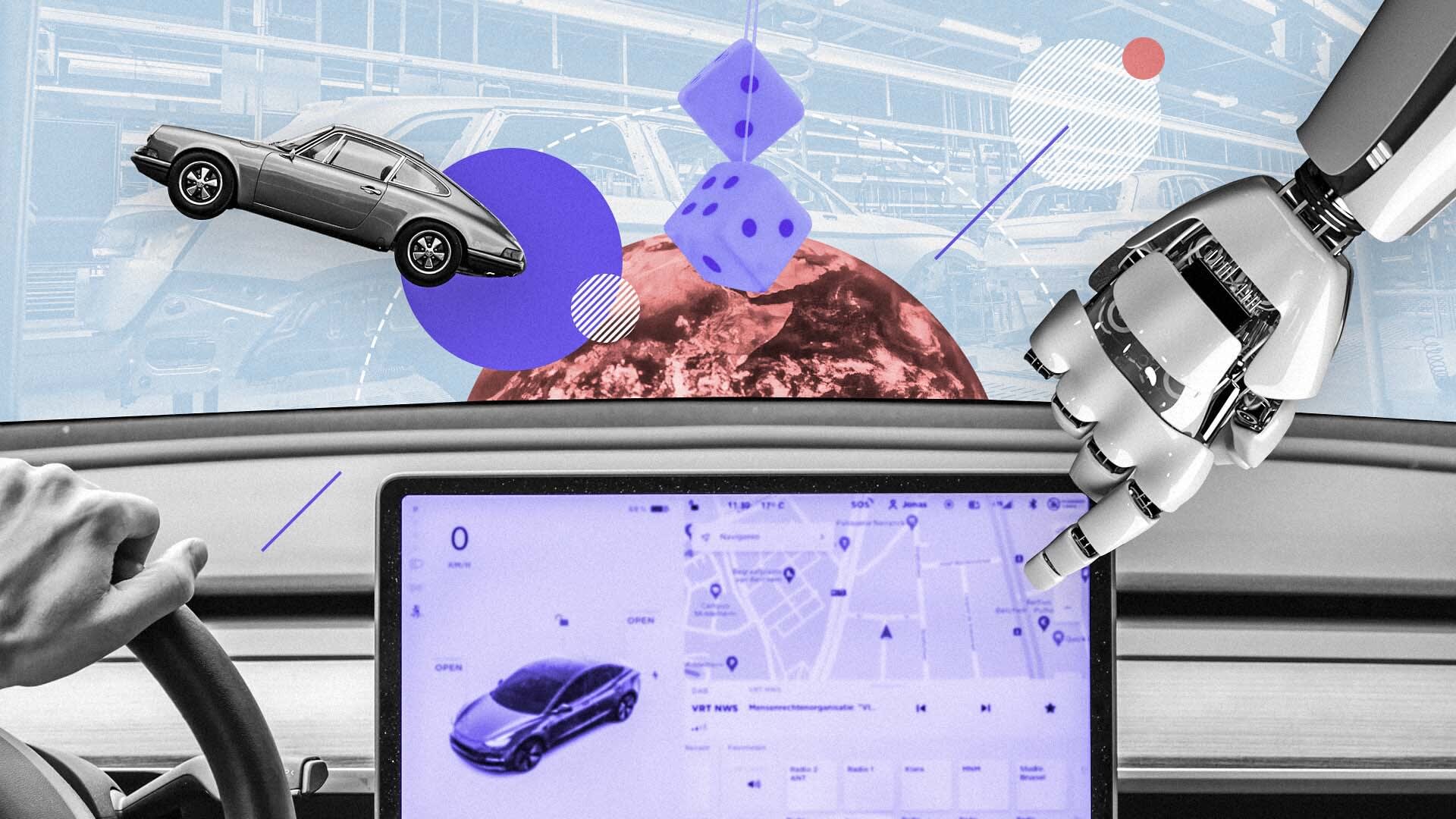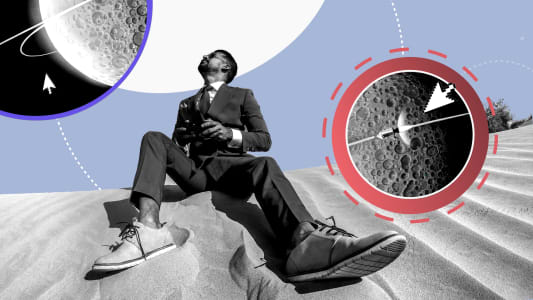Digital products solving the problems of the automotive industry
The automotive industry has stepped into one of the largest paradigm shifts in its history. The rapidly changing demands of the market, consumers, logistics, and governments require implementation of smart and functional digital automotive solutions. In this article, we present the automobile industry’s recent challenges, and Boldare’s involvement in creating great and greater automotive digital solutions. Read about how we helped BlaBlaCar, sonnen, and Nexit.

Table of contents
The automotive industry challenges
Due to the rapidly-growing world population and increase in per capita income, the manufacturing of vehicles needs to become more and more automated to keep up with market demands. This requires an increase of production velocity and efficiency (for example by applying so-called rapid-cycle manufacturing). The automotive manufacturers need to reach for a higher optimization of production systems, more control over supply chains, and smarter use of innovative technologies. All this is not easy, as recently there has been a huge shortage of the microchips used to manufacture cars. Almost every car manufacturer is experiencing delays in production, and sometimes even temporary shutdowns (source).
Additional challenges for the automobile industry come from global-scale environmental issues. It’s not only important for the industry to shift to energy-saving technologies, safe utilization of production waste, and the use of recyclable materials, but also to manufacture eco-friendly vehicles, such as electric vehicles - EVs, or hybrids (source). Consumers are becoming more and more aware of the condition of the environment and ecological factors are getting higher priority in their buying decisions. There are also legal regulations that companies must follow when producing vehicles.
For the same reasons, people have started choosing alternative ways of transportation, such as:
- car-sharing,
- eco-taxis (using vehicles that don’t leave a carbon footprint),
- short term car-rental,
- e-scooters,
- bicycles and e-bicycles,
- public inner-city transportation.
Looking at these choices, it’s obvious that the use of digital products and innovative technologies is essential for reinforcing them. Creating useful applications for car-sharing, user-friendly online reservation systems, and easy-to-use e-hailing solutions, can change people’s behavior, encouraging them to travel in a more ecological way.
Speaking of challenges, we can’t omit the growing relevance of cyber security. The automotive sector - like most other industries - should pay strong attention to it. Innovative vehicles are like super computers on wheels. Ensuring the safety of the systems inside smart cars should be one of the factors taken into account by manufacturers. Consumers’ digital data should also be secured in all automotive web and mobile applications.
The solutions are there: digital products and digital transformation in automotive industry
The challenges are clear: growing market demands, a VUCA world that shapes consumer attitudes, new alternatives for mobility, environmental protection, cyber security, growing competition, and more. Now, the question is: how can the automotive industry deal with all that? Building digital products and supporting digital transformation might be an answer. Digital transformation in automotive industry however, needs to take place within all of its domains, such as:
- choice of products and solutions,
- product design process,
- manufacturing,
- storage,
- operations,
- sales and marketing,
- supply chain management (logistics, shipment, etc.)
The most valuable areas of digital change within the automotive industry are: automation, connectivity, electrification, and smart/shared mobility. This set of factors is also known as ACES. ACES shows the direction for digital innovation and currently attracts the most investors. Through the past decade, over $400 billion has been invested in startups and digital companies (source). Most of the investment has been used for developing products such as:
- vehicles with autonomous driving systems, automatic parking systems,
- EV (electric vehicles), charging stations, and accessories,
- car-sharing applications,
- navigation systems,
- e-hailing solutions,
- manufacturing robot & machinery control.
The demands are driven by consumers’ growing awareness about the condition of the environment as well as new trends in applying IoT, AI, VR, cyber security, and ICS (integrated control systems).
Digital solutions as a pivot of growth for automotive companies
The future of ground transportation is electric, self-driving vehicles that will drive you from one place to another and assist you via AI during your journey. Various companies are testing and prototyping such vehicles. In Tesla cars you can find an integrated driving assistant so that your car can be driven without you holding the wheel. Similar systems have been implemented into the top models of Audi, Toyota, BMW, and other well-known car companies. Next to self-driving assistants, manufacturers often implement self-parking systems (source). These innovative functionalities make top class vehicles even more attractive and desirable.
Digital product development is indispensable for creating smart vehicles that are connected to the internet via mobile devices and apps (source). Drivers are looking for higher comfort and customized tools. Present-day cars should all have functionalities that enable owners to connect their favourite music apps, navigation, parking & highway payments apps, social media, and other tools, directly to the car’s electronic system.
Audi decided to implement virtual reality into their buying process. Customers can test the vehicles in a specially designed virtual showroom (see it here), before making a final buying decision. The interactive experience provides customers with real sound effects, the inside look of the car, and the real feeling of the vehicle’s interior.
BMW invests strongly in advanced handling robots and automated internal transportation. Smart robots can detect, grab, and move objects without human intervention. They’re driven by information stored in the Internet of Autonomous Things - IoAT (source), and network algorithms. Use of such a solution speeds up production and saves human resources.
The above are only a few examples of how companies are implementing digital automotive solutions to boost production and product desirability in automotive industry. Boldare assists with prototyping and applying tech innovations to the automotive industry. Continue reading to learn more about our clients, their digital products, and Boldare’s involvement.
How does Boldare help the automotive industry?
As a future-oriented digital company, Boldare has been actively involved in changing the face of the automotive industry. It has happened through cooperation with a few companies that belong to the automobility sector in different ways. Here we would like to present three of them - BlaBlaCar, sonnen, and Nexit - and tell you the story of our partnerships.
Supporting French unicorn on their way to new markets
BlaBlaCar is one of the best known European unicorns with a $2 billion valuation after a recent $115 million funding round. While it’s associated mainly with carpooling services, the French company entered into the transportation market in 2018. BlaBlaCar bought Ouibus, a bus service previously operated by France’s national railway company SNCF. In this way, the company started providing more traditional transportation services as well.
Company stakeholders contacted us while looking for a partner who could support them with their ambitious expansion strategy. Their goal was to expand the BlaBlaCar platform to 27 new countries with multiple new products, within a year. To meet such a bold objective, the company needed a partner who could not only deliver outstanding product development services, but also provide an agile mindset to be able to maintain such a complex process. After only two weeks of initial talks, Boldare’s development teams were ready to kick off!
The final results were:
- BlaBlaCar’s key business objective of increasing membership from 24 to 35 million users was delivered after 18 months of our partnership.
- 10 new web products in the BlaBlaCar portfolio were developed (including a recruitment service, newsroom, blog and joint UEFA website, etc.)
- They recruited 20 professionals to their in-house development team, with our help.
We are extremely proud that we could support such an amazing company on their road to greatness. Read the full BlaBlaCar’s case study here!
It is very likely that we’d choose Boldare again if found in a similar situation. Boldare is definitely worth the money.
Christian Jennewein, Head of Engineering at BlaBlaCar

Charging your EV smartly
sonnen is a German renewable energy service provider. The company offers a diverse set of services that allows their customers to be 100% independent from traditional energy suppliers by using sonnen’s community grid. One of their most impressive products is sonnenCharger - a household EV (Electric Vehicle) charging device. Boldare created the sonnenCharger app that helps users to manage the car’s charging process.
Using the Full Cycle Product Development process, we started by creating a prototype to conduct user tests. Thanks to data and insights derived from user feedback, we created a Minimum Viable Product app using React Native and the Java Spring framework. The development process took three months. The scrum team responsible for its success was made of two backend developers, two frontend developers, a scrum master, product designer and QA/BA engineer.
The app is available for Android and iOS platforms for all sonnenCharger owners.
The app allows EV owners to follow the charging process and use the app’s smart features to charge the car as quickly as possible, or select specific dates in the future so the app could manage the process independently. The smart mode allows customers to align the charging process with household energy consumption, minimizing energy consumption costs.
The sonnenCharger app is one of the many digital products we created together with sonnen. Read their story in sonnen’s digital transformation case study.
Nexit app - one map to rule the American highways
Nowadays, navigation maps are something inseparable from the entire experience of driving a car. Especially, while traveling through the vast and complex American highway system where taking the wrong exit at a junction will noticeably lengthen the trip and make you miss a gas station or hotel. That’s why the perfect navigation system should also cover important places like restaurants, hotels, gas stations, shops, and tourist attractions.
Nexit app stakeholders reached out to us with an ambitious goal of making such a map app and providing maximum value to all travelers across the US.
Our first goal was to take over an existing, but not finished, app and finalize the development process. During that stage, we focused on improving the app’s stability and usability, making it ready for a final release planned in December of 2019. After a successful release we started gathering the initial feedback coming from users. The data we collected enabled us to create a backlog and start working on the next phase: product-market fit, adding features like iPad support, as demanded by users.\ \ The tech stack of Nexit included Swift, Java (Spring Boot), Elasticsearch, PostgresDB, AWS EKS, AWS Aurora and Docker. The app is downloadable from the App Store with an excellent average rate of 4.6 out of 5.
We finished working on the app in April of 2021 due to the COVID-19 crisis that influenced investors’ initial plans.
What’s the digital future of the automotive industry?
The vehicles of the future will run on completely renewable energy and will be connectable to all personal electronics; and - crucially - they will move autonomously, with no need for a driver. They will be led by algorithms, sensors, cameras, AI, navigation systems, and other, more advanced tools, that are being invented right now. Driverless vehicles are also going to replace the usual human-steered production vehicles. This will make logistics and industrial processes much more efficient.
Innovation has already become inevitable in all sectors of the mobility industry. It helps to deal with market challenges and it’s a solution to various industrial issues. Companies with wise innovation strategies have the best chance of standing out from their competitors and taking a major role in transforming the automotive industry into the digital-automotive industry. That’s the future prediction. Is it right? Let’s find out…

Share this article:








